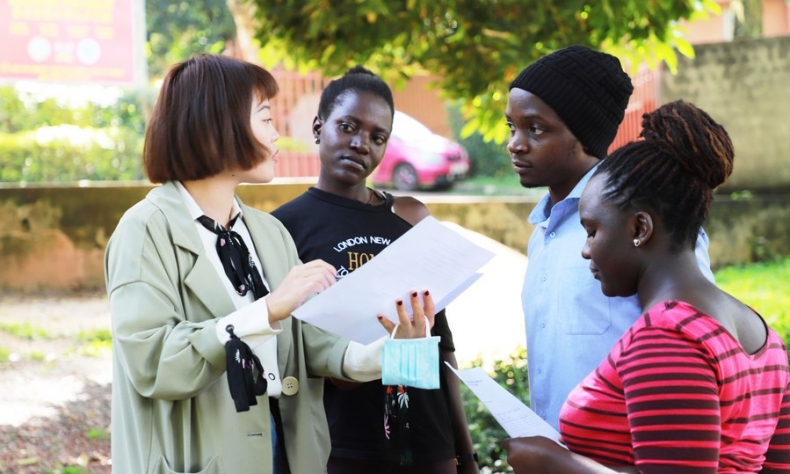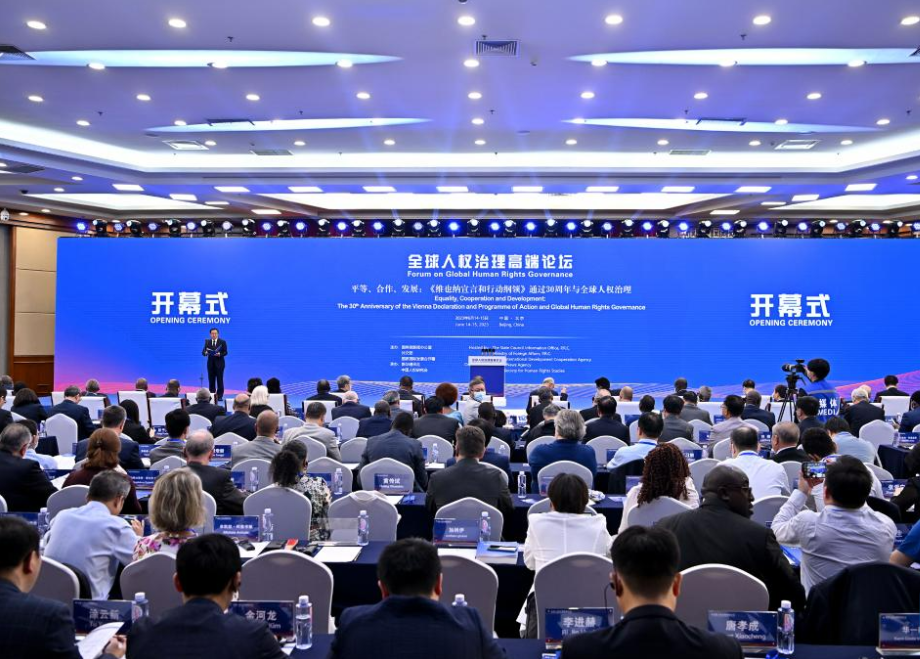Global Security Initiative and Human Rights Guarantee

The GSI is a first-hand practical example of China leading efforts to de-weaponize human rights, and facilitate the right of the peoples around the world to choose ways to develop their type of democracy as well as social and political systems that are aligned to their national conditions.
Editor’s Note: Crispin Kaheru is Commissioner of Uganda Human Rights Commission. This is the excerpt from his speech at the Forum on Global Human Rights Governance, which opened in Beijing on June 14, 2023. The forum is themed “Equality, Cooperation and Development: The 30th Anniversary of the Vienna Declaration and Programme of Action and Global Human Rights Governance”. The article reflects the author’s opinions, and not necessarily the views of China Focus.
I come here from Uganda and by extension Africa to share my perspective on how President Xi Jinping’s Global Security Initiative (GSI) launched in April last year, can guarantee human rights in a world writ with tensions, conflicts, manipulations and uncertainties.
By way of a quick overview, the GSI aims at creating a new pathway to resolving conflict and guaranteeing security. It seeks to promote dialogue over confrontation, partnership over alliances, and more importantly it seeks to encourage win-win situations over zero-sum game settlements. You will all agree with me that confrontation, alliances and selfish interests have for far too long been the order or, may I say, the “dis-order” of the day.
In a world where some self-proclaimed patrons are increasingly obsessed with projecting military might abroad, infatuated with war-mongering, besotted with violence for expansionist interests, it is just right to tilt the balance of forces and re-emphasize the importance of peaceful settlement of disagreements, peaceful coexistence as well as mutual non-aggression. And this is exactly what the GSI is about — “to guarantee world peace through peaceful means”. No society is devoid of disagreements, but how we choose to settle these disagreements is what many times makes a clear distinction; the distinction between civilized and primitive leaderships. The GSI only re-affirms the rejection of the use of force in international relations and the settlement of international disputes by peaceful means on the basis of the UN Charter on the right of the people to peace.

My second point, in a world where self-appointed judges in some capitals have become masters of who is right and who is wrong in internal affairs of other countries, it was just the right time to re-emphasize the internationally agreed norms, such as non-interference in internal affairs of countries, mutual respect for sovereignty and territorial integrity, and the principle of sovereign equality, and peaceful coexistence. The GSI is centered around respect for each other’s sovereignty, security and development interests. These are third generation rights, or call them “solidarity rights.”
Thirdly, in a world fraught with increasing weaponization of human rights, it is most right to de-escalate and de-weaponize the instrumentalization of human rights. When rights are used as tools to subjectively confine, defame and harass cherry-picked societies, rights cease to be rights and they become wrongs. We stand at the worst and best of time in the world today.
Worst of time, because we witness human rights being used as weapons of mass destruction, sometimes. Hegemonic practices, domineering maneuvers, bullying practices featuring prominently on the global stage. Things such as military invasions of other sovereign countries are being regularized, as order of the day. While these are human wrongs, they are in many cases conveniently justified as efforts to protect the international human rights order. These incidents indicate the worst of time.
On the other hand, we stand at the best of time, because we see tectonic shifts meant to challenge human wrongs. The GSI is a first-hand practical example of China leading efforts to de-weaponize human rights, and more importantly, facilitate the right of the peoples around the world to choose ways to develop their type of democracy as well as social and political systems that are aligned to their national conditions.
Number four, in a world deemed to be recklessly speeding towards universalizing the western system as the only way, a world that has for long sought to equate westernization to modernization, it is high time to institute speed governors. Speed governors that spell out the reality of a multi-polar world. A world with diverse realities, diverse resources, and diverse opportunities and pathways to modernization. The GSI embodies the fundamental element: there’s not only one or two ways but rather many ways. People around the world have the human right to choose ways to develop their course of development, type of democracy as well as social and political systems that are aligned to their national conditions. In any case, like it was in the ancient Roman empire, all roads could always lead to Rome. Or like the Chinese leader Deng Xiaoping famously recapped, “it didn’t matter whether a cat was black or white, as long as it caught the mice, it was a good cat.”

My fifth point. In a world where economic assistance has for far too long been pegged to a country’s acceptance of certain subjectively quoted human rights standards and practices, it is high time the world tabled financing for development alternatives that don’t impede social, political and economic rights and freedoms. Genuine assistance should and must never come with strings attached.
70 years plus of libertarian civil and political rights movements have left communities, especially in the Global South, poverty stricken, hunger beaten, and disease ridden. There seems to be little correlation between liberal democratic practices and higher human capital accumulation. On the other hand, the Chinese model that emphasizes economic, social and cultural rights has left China as a global marvel of modernization. It is certainly high time the world pushed for a balanced and contextual financing model that emphasizes support for productive rather than consumptive activities and social spending, to genuinely wipe out poverty. Global security can be realized when people are prosperous and happy.
In a world where a lopsided drive towards “improving” human rights conditions around the world has in many cases resulted into dramatic widening of the wealth gap, worsening hunger and the rise of terrorism, the right thing to do is to stop, re-think and change course. China is not only proposing the way, but it is also sharing its experiences, it is leading the way and peacefully turning the tide. It has made the right to development achievable. Many countries now have a fresh of optimism: if China can do it, then every other country can do it.
As I conclude, the Global Security Initiative is an action-oriented architecture. It has in part exposed the inadequacies of the current normative framework of the international human rights system. Already, it has practically demonstrated that global peace is possible through peaceful means. The GSI must therefore quickly albeit peacefully integrate with both the conventional and new spaces to rebalance global political and security architecture from competition to cooperation. This requires a committed community of practice to deliver both broadly and urgently on the implementation mechanisms.
 Facebook
Facebook
 Twitter
Twitter
 Linkedin
Linkedin
 Google +
Google +










